| Hercules | |
|---|---|
| God of strength and heroes | |
 Copy of Hercules fighting the Nemean lionby Peter Paul Rubens | |
| Abode | Rome |
| Symbol | Club, Nemean Lion, bow and arrows |
| Consort | Juventas |
| Parents | Jupiter and Alcmene |
| Greek equivalent | Heracles |
| Etruscan equivalent | Hercle |
Hercules (/?h??rkjuli?z,
The Romans adapted the Greek hero's iconography and myths for their literature and art under the name Hercules. In later Western art and literature and in popular culture, Hercules is more commonly used than Heracles as the name of the hero. Hercules was a multifaceted figure with contradictory characteristics, which enabled later artists and writers to pick and choose how to represent him. This article provides an introduction to representations of Hercules in the later tradition.
Contents
Labours
Hercules is known for his many adventures, which took him to the far reaches of the Greco-Roman world. One cycle of these adventures became canonical as the "Twelve Labours", but the list has variations. One traditional order of the labours is found in the Bibliotheca as follows:
Side adventures
Hercules had a greater number of "deeds on the side" (parerga) that have been popular subjects for art, including:
- Side adventures
Killing a fire-breathing Cacus (Sebald Beham, 1545)
Holding up the sky for Atlas (based on Heinrich Aldegrever, 1550)
Wrestling with Achelous (16th-century plaque)
Fighting the giant Antaeus (Auguste Couder, 1819)
Retrieving Alcestis from the underworld (Paul Cézanne, 1867)
Freeing Prometheus (Christian Griepenkerl, 1878)
Roman era
The Latin name Hercules was borrowed through Etruscan, where it is represented variously as Heracle, Hercle, and other forms. Hercules was a favorite subject for Etruscan art, and appears often on bronze mirrors. The Etruscan form Herceler derives from the Greek Heracles via syncope. A mild oath invoking Hercules (Hercule! or Mehercle!) was a common interjection in Classical Latin.
Hercules had a number of myths that were distinctly Roman. One of these is Hercules' defeat of Cacus, who was terrorizing the countryside of Rome. The hero was associated with the Aventine Hill through his son Aventinus. Mark Antony considered him a personal patron god, as did the emperor Commodus. Hercules received various forms of religious veneration, including as a deity concerned with children and childbirth, in part because of myths about his precocious infancy, and in part because he fathered countless children. Roman brides wore a special belt tied with the "knot of Hercules", which was supposed to be hard to untie. The comic playwright Plautus presents the myth of Hercules' conception as a sex comedy in his play Amphitryon; Seneca wrote the tragedy Hercules Furens about his bout with madness. During the Roman Imperial era, Hercules was worshipped locally from Hispania through Gaul.
Germanic association
Tacitus records a special affinity of the Germanic peoples for Hercules. In chapter 3 of his Germania, Tacitus states:
... they say that Hercules, too, once visited them; and when going into battle, they sang of him first of all heroes. They have also those songs of theirs, by the recital of this barditus as they call it, they rouse their courage, while from the note they augur the result of the approaching conflict. For, as their line shouts, they inspire or feel alarm.
Some have taken this as Tacitus equating the Germanic Þunraz with Hercules by way of interpretatio romana.
In the Roman era Hercules' Club amulets appear from the 2nd to 3rd century, distributed over the empire (including Roman Britain, c.f. Cool 1986), mostly made of gold, shaped like wooden clubs. A specimen found in Köln-Nippes bears the inscription "DEO HER", confirming the association with Hercules.
In the 5th to 7th centuries, during the Migration Period, the amulet is theorized to have rapidly spread from the Elbe Germanic area across Europe. These Germanic "Donar's Clubs" were made from deer antler, bone or wood, more rarely also from bronze or precious metals.They are found exclusively in female graves, apparently worn either as a belt pendant, or as an ear pendant. The amulet type is replaced by the Viking Age Thor's hammer pendants in the course of the Christianization of Scandinavia from the 8th to 9th century.
Medieval mythography
After the Roman Empire became Christianized, mythological narratives were often reinterpreted as allegory, influenced by the philosophy of late antiquity. In the 4th century, Servius had described Hercules' return from the underworld as representing his ability to overcome earthly desires and vices, or the earth itself as a consumer of bodies.[7] In medieval mythography, Hercules was one of the heroes seen as a strong role model who demonstrated both valor and wisdom, while the monsters he battles were regarded as moral obstacles.[8] One glossator noted that when Hercules became a constellation, he showed that strength was necessary to gain entrance to Heaven.[9]
Medieval mythography was written almost entirely in Latin, and original Greek texts were little used as sources for Hercules' myths.
In 1600, the citizens of Avignon bestowed on Henry of Navarre (the future King Henry IV of France) the title of the Hercule Gaulois ("Gallic Hercules"), justifying the extravagant flattery with a genealogy
Watch movie Hercules online on Amazon
Watch movie Hercules online
Watch The Movie On PrimeJolly Days Full HD Movie Download

Kisna Full HD Movie Download
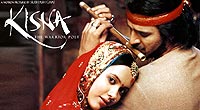
Punnagai Mannan Full HD Movie Download

Patthar Ke Insaan Full HD Movie Download

Raajneeti Full HD Movie Download

Zindagani Full HD Movie Download

Kasauti Full HD Movie Download

Gudia (1998) Full HD Movie Download
.jpg)
Netrikkan Full HD Movie Download
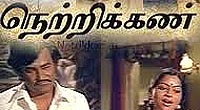
Shankar IPS Full HD Movie Download
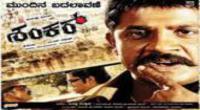
Aji Bas Shukriya Full HD Movie Download

The Killing Jar Full HD Movie Download

Ra Ra Krishnayya Full HD Movie Download
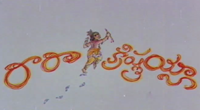
Swami Ayyappa- Shabari Malae Full HD Movie Download

Anantha Poonkatre Full HD Movie Download
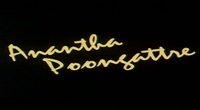
Prashanth Veer Full HD Movie Download

Prema Kavyam Full HD Movie Download

Gudachari 116 Full HD Movie Download

Noorie Full HD Movie Download
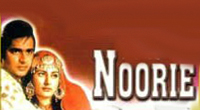
Ladies VS Ricky Bahl Full HD Movie Download

Kaala Patthar Full HD Movie Download

Download latest Movie from bollywood
- 1> baaghi 3
- 2> THE SKY IS PINK MOVIE FULL STORY AND REVIEW
- 3> Luka Chuppi
- 4> TO ALL THE BOYS I’VE LOVED BEFORE
- 5> Kabir Singh
- 6> Street Dancer 3D
- 7> Simmba
- 8> Gone Girl
- 9> The Girl Who Lived
- 10> Ludo
- 11> DILWALE DULHANIA LE JAYENGE
- 12> GUILTY
- 13> The Godfather
- 14> Adventures of Rusty
- 15> Sooryavanshi
- 16> Satyameva Jayate 2
- 17> Thappad
- 18> Bhool Bhulaiyaa 2
- 19> KGFChapter 2
- 20> Mardaani 2
- 21> Pinjar
- 22> Shivaji maharaj
- 23> Ek Villian 2
- 24> Hungama 2
- 25> Divergent
- 26> Mumbai Saga
- 27> The Internship
- 28> HIT (telugu)
- 29> Panga
- 30> The perfect date
- 31> 16 December
- 32> Gopala Gopala (Telugu)
- 33> Brahmastra
- 34> Gangubai Kathiawadi
- 35> Manmadhudu
- 36> Nenu local
- 37> Mahanati
- 38> Shatamanam bavathi
- 39> Lagaan
- 40> After
- 41> MOM
- 42> Shamshera
- 43> Raguvaran BTech
- 44> Khakee
- 45> The villain
- 46> OM
- 47> Mr. perfect
- 48> Bueatifull mind
- 49> Hichki
- 50> Gabbar Singh
- 51> Jogi
- 52> Before Sunrise
- 53> Before Sunset
- 54> Before Midnight
- 55> The Big Bull
- 56> Top Gun: Maverick
- 57> The Purge
- 58> The Sky is Pink
- 59> Laxmmi Bomb
- 60> Sadak 2
- 61> Sufna
- 62> Prithviraj
- 63> PK
- 64> Coolie No 1(2020)
- 65> Black Widow
- 66> Dear Zindagi
- 67> Dil Bechara
- 68> PHIR HERA PHERI
- 69> WAR
- 70> Dostana
- 71> RRR: Roudram Ranam Rudhiram
- 72> Maidan
- 73> Dabbang 3
- 74> Chhalaang
- 75> life as we know it
- 76> SherShaah
- 77> Sandeep Aur Pinky Faraar
- 78> Event Horizon
- 79> 83
- 80> Radhe: Your Most Wanted Bhai
- 81> Gunjan Saxena: The Kargil Girl
- 82> Mr India
- 83> Vivah
- 84> Anokha Bandhan
- 85> Ghost
- 86> Bhoot: Part One - The Haunted Ship
- 87> Haseen Dilruba
- 88> Laal Singh Chaddha
- 89> Qismat
- 90> Rajput
- 91> Drive
- 92> Dil Chahta Hai
- 93> Dil Ki Baazi
- 94> Dil Ka Rishta
- 95> Teesri Manzil
- 96> Dil
- 97> Love Aaj Kal
- 98> Khaali Peeli
- 99> Bunty Aur Babli 2
- 100> Atrangi Re
- 101> Gulabo Sitabo
- 102> Jodi
- 103> Suraj Pe Mangal Bhari
- 104> Deewana
- 105> Attack
- 106> Sardar Udham Singh
- 107> Toofan
- 108> THE LOVEBIRDS
- 109> Jersey
- 110> Ginny Weds Sunny
- 111> Thalaivi
- 112> Shiddat
- 113> Angels vs Zombies
- 114> Koi Mil Gya
- 115> Thank God
- 116> Bhuj: The Pride of India
- 117> Hum Aapke Hain Kaun
- 118> The Platform
- 119> Bird Box
- 120> Roohi Afzana
- 121> Torbaaz
- 122> Nikamma
- 123> World War Z
- 124> Extraction
- 125> Train to Busan
- 126> Life of Pi
- 127> SHAADI MEIN JROOR AANA
- 128> Himmat Aur Mehnat
- 129> To All The Boys: P.S. I Still Love You
- 130> Mimi
- 131> Good Newwz
- 132> Shubh Mangal Zyada Saavdhan
- 133> Raabta
- 134> Harry Potter and the Philosopher's Stone
- 135> Harry Potter and the Chamber of Secrets
- 136> Chhapaak
- 137> War of the Worlds
- 138> Harry Potter and the Prisoner of Azkaban
- 139> Harry Potter and the Goblet of Fire
- 140> MURDER MYSTERY
- 141> Shakuntala Devi
- 142> Bachchan Pandey
- 143> Jayeshbhai Jordar
- 144> Sheer Qorma
- 145> Saina
- 146> 'O' Pushpa I hate tears
- 147> Kedarnath
- 148> MS Dhoni The Untold Story
- 149> Chhichhore
- 150> Badhaai Ho
- 151> Unstoppable
- 152> Oz the Great And Powerful
- 153> The Girl on the Train
- 154> Haathi Mere Saathi 2020
- 155> The Conjuring: The Devil Made Me Do It
- 156> Gandhi Se Pehle Gandhi
- 157> The Song of Scorpions
- 158> Srimanthudu
- 159> Hello Guru Prema Kosame
- 160> Beauty and The Beast
- 161> Black Panther
- 162> Charlie and the Chocolate Factory
- 163> Bole Chudiyan
- 164> Fidaa
- 165> Duvvada Jagannadham
- 166> Bruce Lee: The Fighter
- 167> Hyper
- 168> Yaara
- 169> Red (2020)
- 170> Shivam
- 171> That Is Mahalakshmi
- 172> Nishabdham
- 173> Aashram 2020 web series
- 174> Laxmii
- 175> Mismatched
- 176> STUDENT OF THE YEAR 2
- 177> NAIL POLISH
- 178> Ramprasad Ki Tehrvi
- 179> KAAGAZ
- 180> 12 o Clock
- 181> The Power
- 182> bolo hau
- 183> Tribhanga
- 184> JAMUN
- 185> Madam Chief Minister
- 186> Maasaab
- 187> Aadhaar
- 188> Tanhaji
- 189> Bhaagi 3
- 190> Bhootnath
- 191> MALANG
- 192> Jai Mummy Di
- 193> Haathi Mere Saathi 2021
- 194> Shakeela
- 195> Unpaused
- 196> Annayya
- 197> Vamsoddharakudu
- 198> Mrugaraju
- 199> Narasimha Naidu
- 200> Sankranti
- 201> Manasu Maata Vinadhu
- 202> Anjaane
- 203> Apaharan
- 204> Bachke Rehna Re Baba
- 205> Bewafaa
- 206> Roohi
- 207> Radhe
- 208> Zindagi Khoobsoorat Hai
- 209> Yeh Mohabbat Hai
- 210> Yeh Kya Ho Raha Hai?
- 211> The Tomorrow War
- 212> DehradunDiary
- 213> Meri Shaadi Karaoo
- 214> Matruu Ki Bijlee Ka Mandola
- 215> No One Killed Jesica
- 216> Aag Ka Goola
- 217> Eight Million Dollars
- 218> Three Hundred
- 219> Cats and Dog
- 220> Decoy
- 221> Gold Rush
- 222> You Have Got Mail
- 223> Final Destination three
- 224> Tofan
- 225> Jungle
